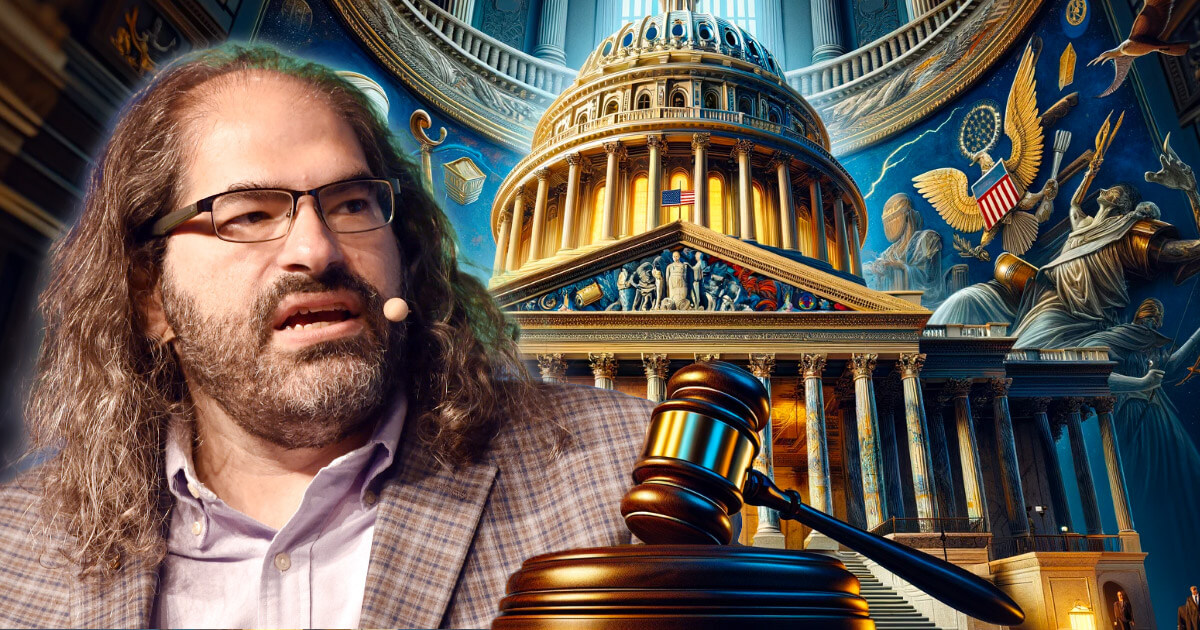
David Schwartz, CTO of Ripple, recently shared his thoughts on the changing dynamics of American securities law. He specifically focused on its application to digital assets and underlined the need for clarity in legislation to pave the way for balanced regulation.
Schwartz underscored the flexible nature of the Howey test, which serves as a cornerstone for securities law. He emphasized that its application requires a nuanced approach rather than a ‘robotic’ approach. While conceding that several court decisions have expanded its interpretation over the years, Schwartz emphasized that there is still confusion about its application in some cases.
Congressional action
Schwartz’s comments reflect a growing consensus that the digital assets space may need a new regulatory perspective to ensure fair and effective regulation.
In his series of tweets, Schwartz provided a nuanced view of the current legal landscape for digital assets and emphasized the need for a balanced approach, possibly through congressional involvement. He expressed skepticism that courts alone could strike an appropriate balance in defining what constitutes security in the context of digital tokens.
He hinted that without legislative action, courts might not classify digital tokens as securities. In such a scenario, a congressional response becomes more likely and would be necessary for a more balanced approach to regulation, Schwartz said.
Securities Laws
Schwartz’s comments are rooted in the ongoing debate surrounding the application of the Howey test, which is used to determine whether certain transactions qualify as investment contracts and are therefore subject to securities laws.
Schwartz asserted that the primary purpose of securities law is to combat securities fraud, which often poses significant detection problems. He discussed how these laws address unique issues associated with uncovering and punishing fraud in the securities industry, for example by imposing disclosure requirements on organizations seeking public investments.
Schwartz noted that while the original Howey test required profits to arise “solely” from the efforts of others, later cases have broadened this understanding, recognizing the influence of market forces. He emphasized that the complexity of defining an investment contract further increases when we look at cases where items provided free of charge are considered potential investment contracts.
The Howey test is codified in SEC v WJ Howey Co.328 US 293 (1946), which reads:
“The test is whether the plan involves an investment of money in a common enterprise, with profits arising solely from the efforts of others. If this test is met, it is immaterial whether the business is speculative or non-speculative, or whether it involves a sale of real estate with or without intrinsic value (See SEC v. Joiner Corp., supra, 320 US 352.) The legal policy of providing broad protection to investors should not be thwarted by unrealistic and irrelevant formulas.”
However, Schwartz argued that before something can be considered an investment contract, there must be an actual contractual agreement with the potential for the investor to be defrauded. He also wondered why certain items, such as early works of art or collectibles, are not considered securities, despite apparently meeting the criteria of the Howey test.
However, SEC vs. Howey also cites the prevalence of “blue sky” laws in many states as precedent, complicating Schwartz’s position. According to the Court’s reasoning in establishing the Howey test:
“The term ‘investment contract’ is not defined by the Securities Act or any relevant legislative reports. But the term was common in many “blue sky” laws that existed before the passage of the federal statute, and although the term was also undefined by state law, it was broadly interpreted by state courts to allow the investing public to to provide full protection. Form was ignored and the emphasis was placed on economic reality. An investment contract thus came to mean a contract or arrangement for ‘the placement of capital or the expenditure of money in a manner intended to secure income or profits from its employment.’”
In July, a US court ruled that Ripple’s programmatic sales and distribution of XRP are not securities. The court found that these distributions and sales did not meet the Howey Test criteria. However, XRP sales to institutional buyers can be considered securities due to their understanding of the relationship between the price of XRP and Ripple’s performance.

